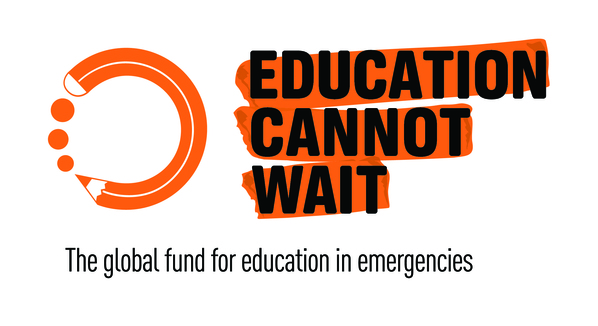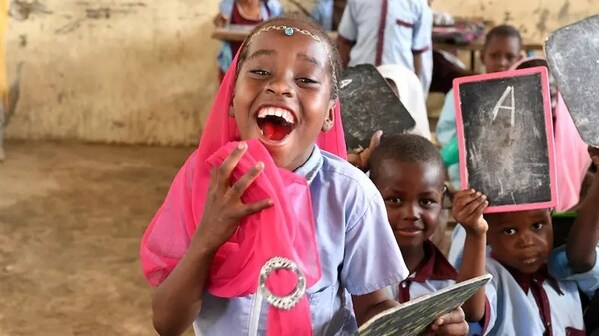 |
The expanded grant will be delivered by UNICEF in coordination with local and international partners to respond to growing needs that have left 3.2 million children out of school.
NEW YORK, Dec. 20, 2024 /PRNewswire/ -- Chad is one of the poorest countries in the world. In all, more than a third of the population needs humanitarian assistance. The war in neighboring Sudan, intercommunal conflict, climate change and other issues are triggering more forced displacement and disrupting the educational pathways of millions of learners.
In response to these multiplying crises, Education Cannot Wait (ECW) and its strategic partners announced today a US$20 million grant that will extend the Fund's Multi-Year Resilience Programme in Chad, reaching approximately 66,000 crisis-affected children and adolescents.
The grant will be delivered by UNICEF in coordination with the Government of Chad and a number of national and international partners. ECW funding in Chad now tops US$61 million and has reached over 880,000 children with the safety, hope and opportunity that only a quality education can provide.
ECW's catalytic grant represents a significant contribution to the Humanitarian Response Plan in Chad, which calls for US$28.2 million toward education. Overall, 50% of the humanitarian appeal remains unmet.
"Chad has opened its doors for refugees and integrates refugee children into the national education system. This is a shining example of refugee protection. However, the current needs far outstrip the resources available. We must support Chad to sustain its solidarity with refugees. Far more financial resources are needed, and it is incumbent on the public and private sector to contribute their share. Through substantive additional funding, we can and must step up funding to ensure access to quality and protective learning environments for refugee children and adolescents, as well as their teachers, in Chad. Taken together with other actions, this is an essential investment in refugee education and a realization of the commitments we all made at the Global Refugee Forum," said Yasmine Sherif, Executive Director of Education Cannot Wait, the global fund for education in emergencies and protracted crises in the United Nations.
"The challenges facing education in general are significant. The support from the Multi-Year Resilience Programme plays a crucial role in meeting education in emergency needs in Chad. This support not only addresses immediate educational crises but also contributes indirectly to the socio-economic development of the affected provinces. We thank Education Cannot Wait for their ongoing efforts to support education in emergencies in Chad, and we encourage continued support in our efforts to address urgent educational needs," said Chad's Minister of National Education and Civic Promotion, Mr. Mamadou Gana Boukar.
Chad is one of the world's largest hosts of refugees. In all, there are over 1.7 million forcibly displaced persons in Chad, including 1.2 million refugees. Forced displacement, food and nutritional insecurity, health emergencies, and the effects of climatic hazards remain the four primary drivers of humanitarian needs in Chad.
These factors – along with a large influx of refugees fleeing the war in Sudan and returnees from the Central African Republic and Cameroon – are straining national resources and impeding progress to ensure universal education. Approximately 3.2 million children and adolescents are outside the school system. Even when they are in school, the quality of education often falls behind, high school fees keep children out of school, and access is often limited as severe weather events become even more dangerous as the result of climate change.
"UNICEF expresses its gratitude to Education Cannot Wait for its unwavering support of school-aged children affected by complex crises in Chad. The second phase of the Multi-Year Resilience Programme aims to ensure access to inclusive, quality education. This programme will strengthen the education system's resilience in the face of various challenges, particularly in the provinces of Ouaddaï and Logone Oriental, over the coming years. Together, we can change lives and build a bright future for children in Chad," said Dr. Marcel Ouattara, Acting Representative of UNICEF Chad.
Of the 66,600 children targeted through the catalytic investment, over 40% will be refugee children. The programme will also train over 1,500 teachers on conflict and risk reduction, mental health and psychosocial support, and pedagogy. The programme also makes important strides in providing civil registration for children, reaching vulnerable girls, and providing bespoke education pathways for children with disabilities.
About Education Cannot Wait (ECW):
Education Cannot Wait (ECW) is the global fund for education in emergencies and protracted crises in the United Nations. We support quality education outcomes for refugee, internally displaced and other crisis-affected girls and boys, so no one is left behind. ECW works through the multilateral system to both increase the speed of responses in crises and connect immediate relief and longer-term interventions through multi-year programming. ECW works in close partnership with governments, public and private donors, UN agencies, civil society organizations, and other humanitarian and development aid actors to increase efficiencies and end siloed responses. ECW urgently appeals to public and private sector donors for expanded support to reach even more vulnerable children and youth.
On X/Twitter, please follow: @EduCannotWait @YasmineSherif1 @KentPage
Additional information available at: www.educationcannotwait.org
source: Education Cannot Wait
【你點睇】陳美寶、羅淑佩分別被任命為運物局及文體旅局局長,你是否認同新任命有助香港鞏固物流樞紐地位及促進旅遊經濟?► 立即投票
































